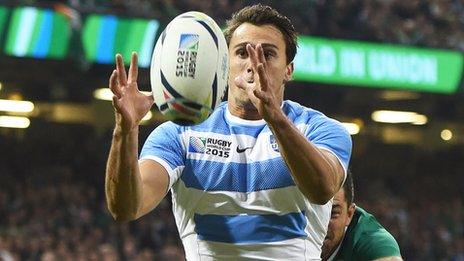Rugby World Cup 2015: 'I didn't see Ireland hammering coming'
- Published
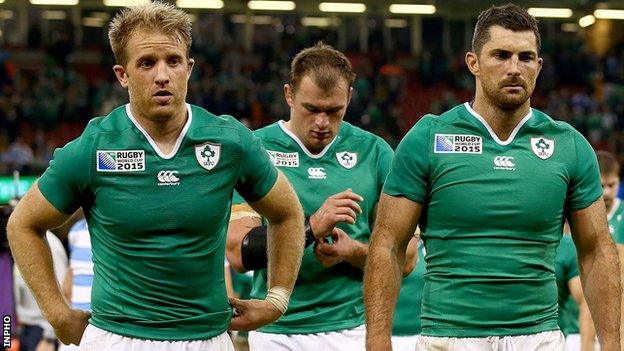
Stephen Ferris says Ireland's players will feel that they have under-achieved at the World Cup
Well, what an anti-climax that turned out to be.
In the build-up to the World Cup and through the tournament, I never believed Ireland were good enough to win the Webb Ellis Cup, but I was certain their campaign would not end in a hammering.
Coach Joe Schmidt just would not let that happen.
Alas it did, in hugely disappointing fashion in Sunday's 43-20 quarter-final defeat by Argentina.
Injuries to talisman and captain Paul O'Connell, Johnny Sexton, Peter O'Mahony and Jared Payne, plus Sean O'Brien's suspension, were huge factors in Ireland's collapse.
Looking back, Sexton's withdrawal from the team on Saturday morning was probably the tipping point.
More from rugby: |
|---|
For the latest rugby union news, follow @bbcrugbyunion, external on twitter |
In terms of morale, it cannot have been great for the squad to see him ruled out so late in the week given that Johnny calls every attacking play.
Everybody had confidence in Ian Madigan after the performance he put in when he came on against France, but it is a completely different ball game starting a World Cup quarter-final with everything on the line.
Since Sunday's game, Schmidt and the rest of the players have not gone down the road of using the absentees as an excuse.
But let's face it, a team like Ireland are going to be up against it when missing such influential performers.
Pumas punish Ireland's narrow defence
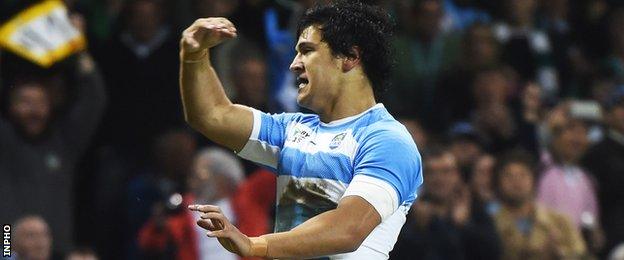
Matias Moroni scored Argentina's first try after only three minutes in Sunday's game
Ireland's defensive structure was just far too narrow and passive during the opening 13 minutes as they found themselves 17-0 down.
Argentina took a leaf out of the New Zealand book by playing the wide-wide game and Ireland just could not cope.
As soon as Argentina went wide, their outstanding flankers, Juan Martin Fernandez Lobbe and Pablo Matera, and hooker Agustin Creevy were causing carnage.
The Pumas had so much width and Ireland did not know how to deal with it.
To Ireland's credit, Luke Fitzgerald's brilliance helped get them back into the game and when they recovered to 20-17 and 23-20 in arrears, I thought they were going to complete the greatest comeback in World Cup history.
At that stage, Argentina were looking seriously rattled with their discipline starting to go, but the third Pumas try in the 68th minute - after Ireland were yet again caught napping out wide - ended the game as a contest.
Best was Ireland's top forward by some distance
Ireland hooker Rory Best says they believed they were going to beat Argentina despite going 17-0 down early in the game.
It was sad to see the heroic Rory Best, Ireland's best player on the day, having to leave the fray before the end looking absolutely punctured.
He gave it absolutely everything but unfortunately the other forwards were unable to match him despite trying manfully.
I felt for Iain Henderson, who should have been in the back row, trying to pick up the ball and run through opponents like Juan Martin Fernandez Lobbe and Pablo Matera did in the opening 20 minutes.
You want your big ball-carriers in the game but, playing in the second row, Henderson did not have a chance to make an impression with much of his energy being expended in a kind of secondary tight-head prop role in the scrum.
'Is this the death of European rugby?'
Knowing that they were missing so many key players will not reduce the sense of frustration that the Ireland players will feel for some time.
This one is going to hurt because they will believe that they have seriously under-achieved.
But World Cups are hard. Just ask England.
With no northern hemisphere teams making the last four for the first time in World Cup history, there is inevitable talk of a crisis in European rugby and how we now should rip up the existing tactics manuals and start from scratch.
But all that is a little bit knee-jerk.
But for a bad refereeing decision, Scotland would be in the semi-finals and Wales would probably have got to the last four themselves if they had not had such diabolical luck with injuries.
Ireland were severely under-strength as well as they got a bit of a hammering against a very good Argentina side.
Ireland should have beaten the All Blacks in Dublin two years ago and a repeat of that form and the performances that saw off Australia and South Africa last autumn might have been good enough to get them to a first semi-final.
But they were unable to match that and it has to be a concern that Ireland could not perform when it really mattered.
It is about peaking at the right time. The southern hemisphere teams just seem better prepared heading into World Cups after playing all those high-octane games in the Rugby Championship in July and August.
The European teams are playing phoney war warm-up games in August and early September and it is just not the same preparation.
Stephen Ferris was talking to BBC Sport's John Haughey.
- Published20 October 2015
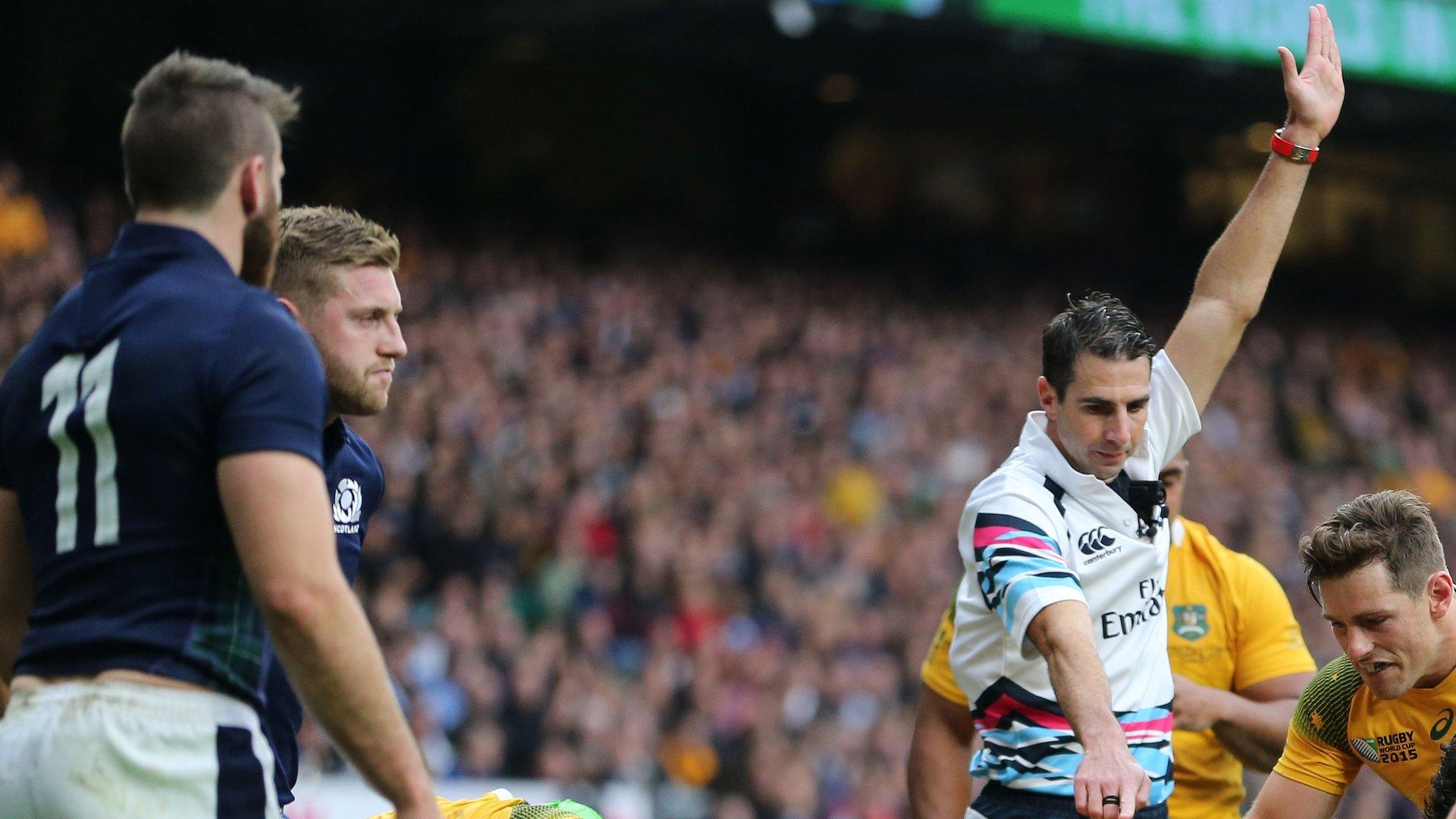
- Published20 October 2015
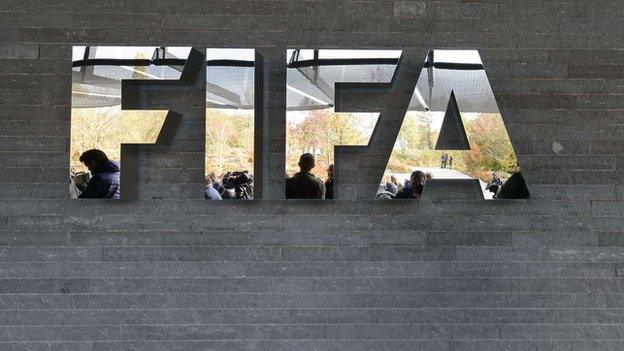
- Published20 October 2015
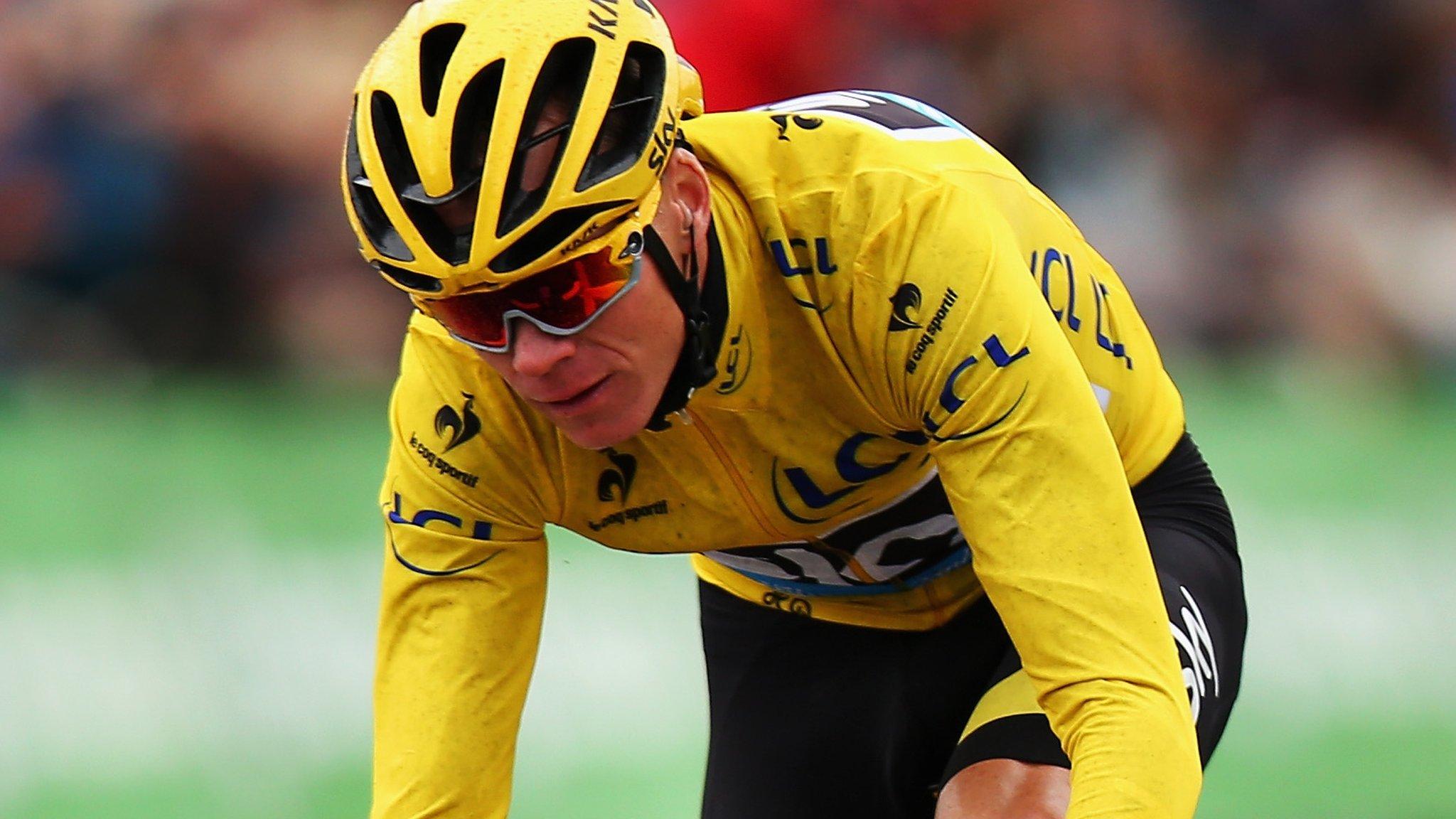
- Published18 October 2015
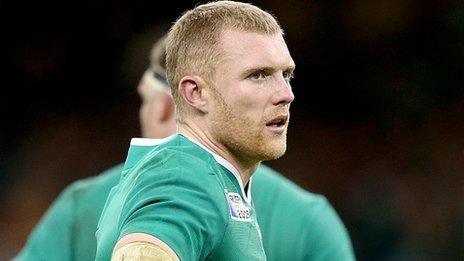
- Published18 October 2015
